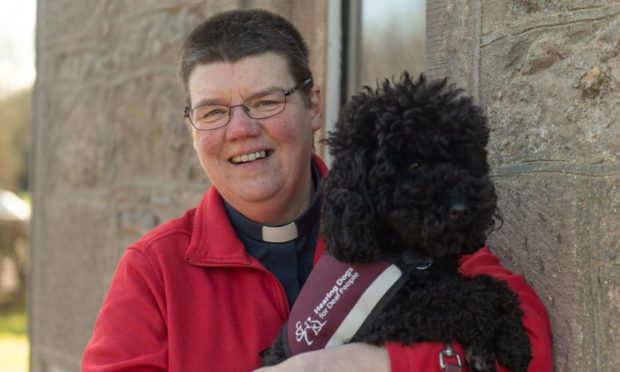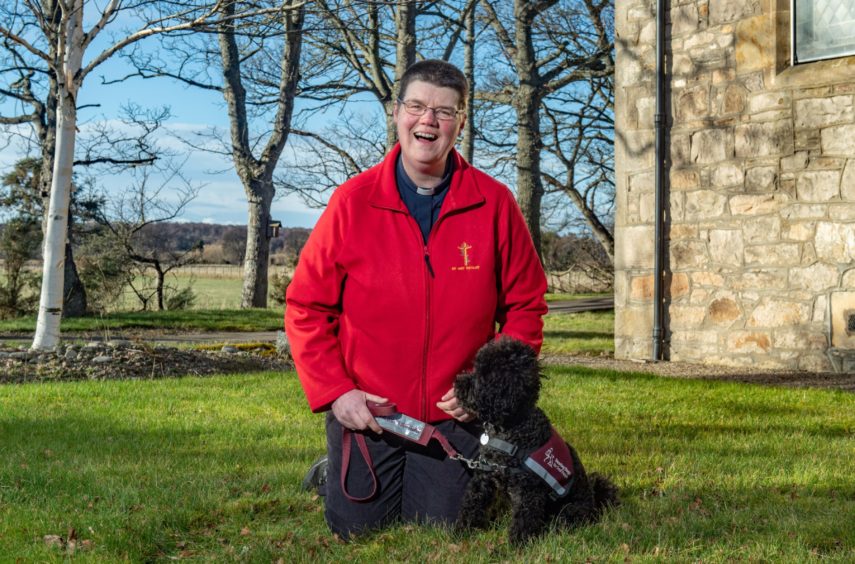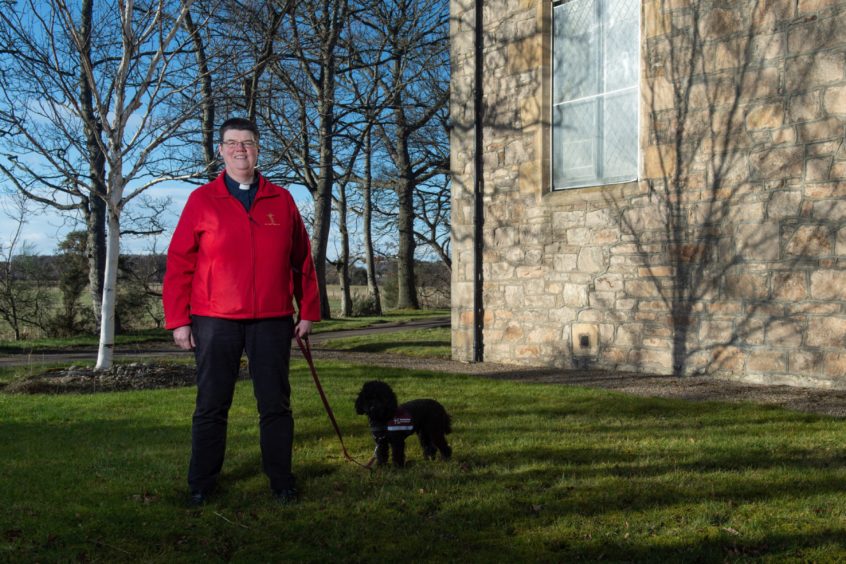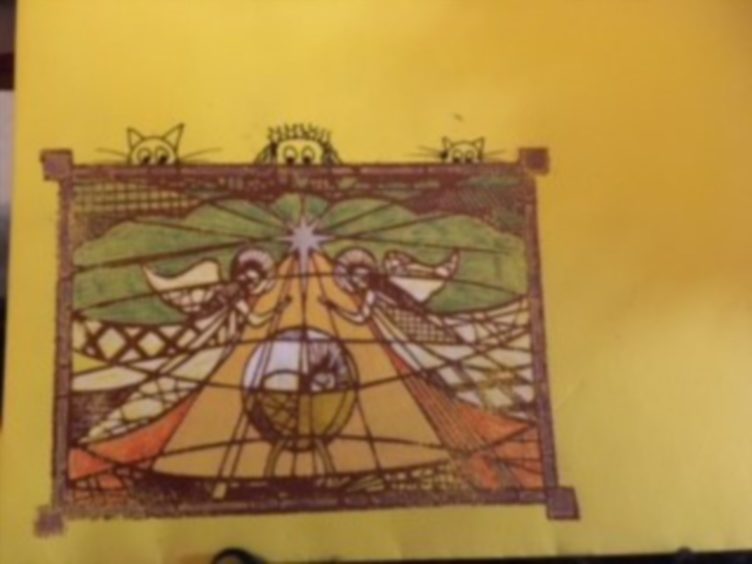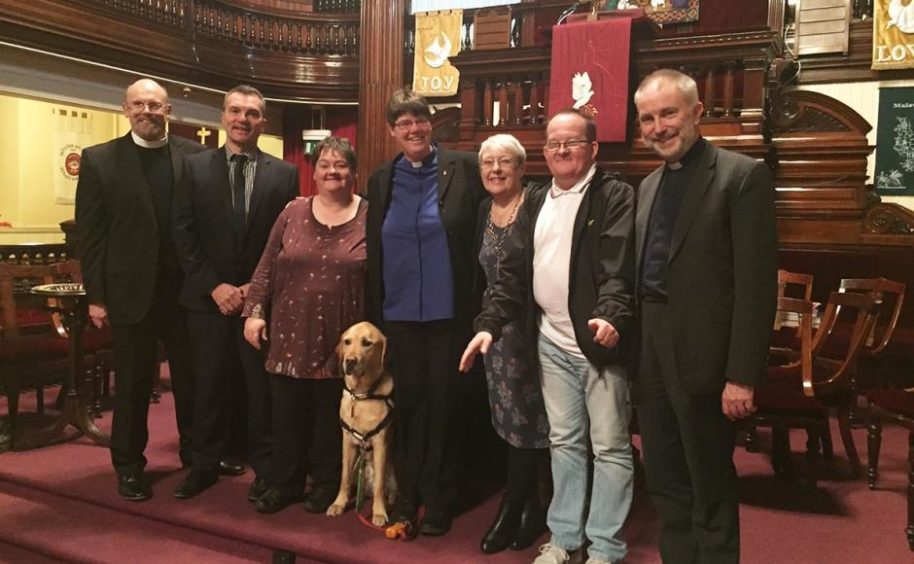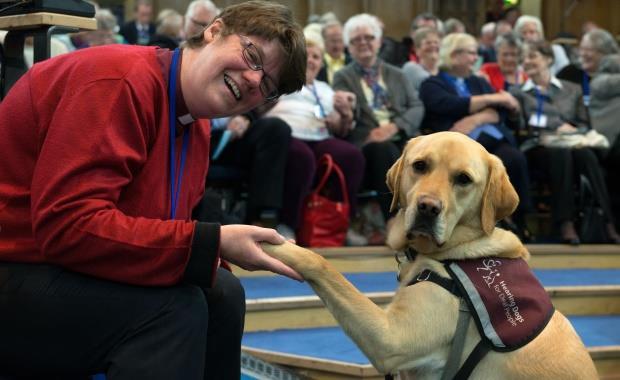Mary Whittaker has never been fazed by setbacks or challenges on her spiritual journey.
As Scotland’s first deaf minister, with a parish which spans thousands of square miles, stretching from Perth to Shetland and Aberdeen to the Outer Hebrides, she has spent years transcending difficulties and overcoming obstacles, boosted by her faith, her friends, her cherished hearing dogs, and insatiable zest for life in and out of the pulpit.
It’s a long time since the Yorkshire-born Rev Whittaker was gaining an honours degree in London, prior to devoting herself to Christian Studies at Aberdeen University.
But wherever she has travelled, and whether earning a black belt in kickboxing, creating a BSL choir, singing sea shanties with a group of her colleagues in lockdown or being ordained into Lossiemouth as the first Deaf British Sign Language user in the Church of Scotland, she has flung herself into the fray with unfettered enthusiasm.
The long and winding road to the ministry
Despite efforts to increase the number of BSL users, the figure remains alarmingly small and Rev Whittaker has had to be resilient to progress in her career path.
She still remembers the days when she arrived in the Granite City and made the decision to commit herself to a route which was, at that stage, unprecedented.
She said: “I think I was the first deaf student at Aberdeen University who used BSL to study divinity. I am really proud, because there were lots of barriers at the time which I finally broke through. It was really hard work, though.
“You have to be prepared to put in the time, the hard work and to fight. It was not easy, but I loved doing research, writing and thinking and being part of the university.
“I was already living and working in the city when I first started to study part-time for a certificate in Christian Studies from 1998 to 2006. It was around 2003 when I moved to Elgin and I applied to the Church of Scotland for auxiliary ministry.
“Later on, I was ordained on May 10 2011 in Lossiemouth as Auxiliary Minister to Deaf People in North East Scotland and the Highlands and Islands.”
But while it was a long journey, Rev Whittaker remained positive every step of the way and one detects the same commitment and tenacity in her to this day.
The problems of being deaf in a pandemic
The restrictions which have been imposed to tackle the Covid-19 pandemic have proved arduous enough for people with all their senses intact throughout Scotland.
But just try to imagine the travails which are faced by those who are forced to rely on others for support, on a system such as BSL, or have to attempt lip reading even while everybody around them is wearing masks and observing social distancing.
In this environment, Rev Whittaker has shown ample ingenuity and innovation in maintaining contact with her congregants, scattered all across the north of Scotland.
She has used Zoom calls to organise meetings, and devised a very personal art project – which she has shown to the Press and Journal – to lift the spirits of those who might be at risk of feeling vulnerable or facing social isolation.
And if she can put a smile on people’s faces or send her far-flung congregation a drawing with an uplifting message, she thinks it improves everybody’s morale.
Spreading the gospel and making work for posties
Rev Whittaker said: “The biggest challenge is that most of the deaf congregations do not have access to online or Facebook, so I have decided to send weekly letters to them.
“I mail art to cheer up not only the 27 people on my church list, but also my local Post Office in the village shop in Lhanbryde and there are posties who are delivering mail to Aberdeen city, Elgin, Buckie, Nairn, Dundee, Fife and Perthshire.
“For those who can access online, there is the BSL church worship with about 1,500 ‘friends’ and we have a rota to do Sunday services with other BSL users in England.
“The biggest impact in this pandemic is where people have to wear face masks and coverings which makes it impossible to lip read.
“And facial expressions are an important part of communication for deaf people.
“The deaf find it harder to see ‘tone and stress’ in facial expressions, due to them being hidden out of sight [by masks].
“And yes, I believe that it is important for more people to learn BSL in order to integrate into the wider community. Because, at the moment, deaf BSL users make up about 1% of the population.”
Getting her kicks from healthy exercise
Rev Whittaker gained her black belt in kickboxing back in 2018 and she remains an enthusiastic participant in this physical activity even in her 60th year.
That helps explain why she has been missing the opportunity to continue sparring as a consequence of community centres and sports halls being closed due to Covid.
She said: “I really miss kickboxing – it is not only great fun, but it also helps me with my balance, my mobility – I have osteoarthritis – and my posture. It all started with a friend asking me to join with her in circuit fitness at Lossiemouth’s Elite Kickboxing club.
“It wasn’t until around a year later when I agreed to join in the fitness class. One day, I won raffle prizes for a free one-to-one kickbox tutorial and I really enjoyed it.
“I have never looked back ever since. Every time that I come to classes, I never know what to expect, because it is always different every time you take part.
“Unfortunately, Sfear [the kickboxing, health and fitness centre in Lossiemouth] is shut just now and, with the pandemic, I feel like I have gone to seed!”
Mary is toasting the 25th anniversary of Singing Hands
Music plays a leading part in Rev Whittaker’s hectic life and has done so ever since she was a youngster.
In the weeks ahead, she and her colleagues, from the safety of their own homes, will be celebrating the 25th anniversary of the Singing Hands BSL choir, which was established during International Women’s Day commemorations back in 1996.
It’s another of the community initiatives which has helped bring people together from all different ages and backgrounds.
She said: “The BSL signing choir was born from the first workshop I led during the course of the International Women’s Festival in Aberdeen.
“And Singing Hands is still going strong today a quarter of a century later.
“We meet up by Zoom calls every Sunday afternoon – 25 years after it all began.”
Hearing dogs have been a woman’s best friend for Mary
Rev Whittaker has been helped on her journey by canine companions and was regularly pictured with her hearing dog, Scott, until he retired last year.
She described him as “a great ice-breaker whenever I meet new people” and somebody who accompanied her to training courses, church services, pastoral visits and hospitals – but not funerals.
As she explained: “I learned from my sister who looked after him during a funeral and she told me the emotional environment was too much for him and he ‘cried’ loudly.”
Since the New Year, Rev Whittaker has been joined by a new companion, Clark, and the pair have already forged a close bond.
That isn’t really surprising, given how this redoubtable woman seems to make connections wherever she ventures.
